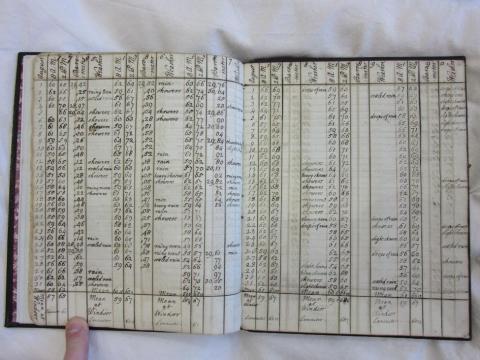The ‘Building UK climate resilience through bridging the qualitative-quantitative data divide’ project has brought together an interdisciplinary team to investigate approaches for bridging the qualitative-quantitative ‘data gap’ in the climate and hydrological sciences. Our network brings together experts from a range of different disciplines (e.g. geographers, historians, engineers, sociologists, linguistics, engineers and insurance) related to climate resilience in the UK. Our purpose is to develop a framework for bringing the knowledge and experiences contained within past descriptive materials (qualitative) of past extreme and mundane events together with instrumental (quantitative) information. This can then be used to better inform climate service provision, charting the effects of past climate variability and extreme weather events on communities, ultimately helping to improve the resilience of the most vulnerable communities to future climate change risks.
Accurate estimation and understanding of high-magnitude low-probability events is challenging. However, historical records can contest and contextualise claims of uniqueness, unparalleled magnitude or severity often associated with contemporary extreme storms, floods, droughts or coastal flooding; addressing the data gap presented by short records. Several databases of collated documentary materials exist, detailing both past mundane and extreme climatic and hydrological events, but also detailing how communities and societies have responded, proving valuable information not routinely used in risk assessment, adaption or resilience planning.
Watch Climate Resilience webinar, 18 November 2020: Building UK climate resilience through bridging the qualitative-quantitative data divide with Dr Neil MacDonald (University of Liverpool) and Dr Thomas Kjeldsen (University of Bath). Part 1, part 2, part 3, and part 4.
Top image is of the weather diary of Thomas Heberden (1785-1854), Devon

